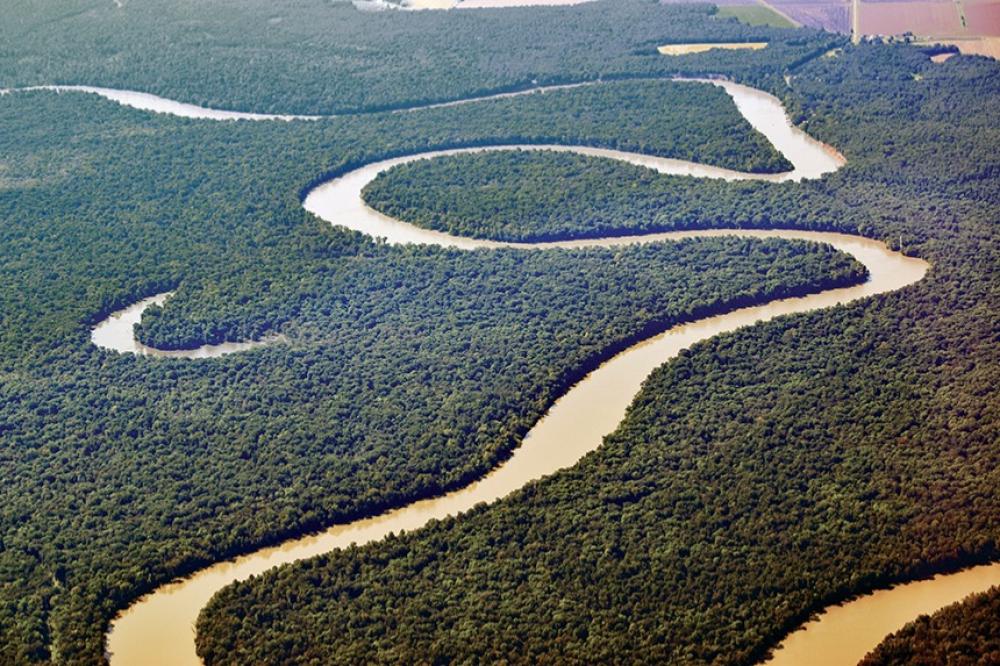#### introduction
Rivers are bodies of running water that play a vital role in balancing the ecosystem and supporting life on Earth. Rivers originate from various sources, such as springs, glaciers, or heavy rain, and flow across various terrains to empty into seas or oceans. In this article, we will discuss the importance of rivers from the environmental, economic, and social aspects, the challenges they face, and ways to protect them.
### Environmental characteristics of rivers
#### The water cycle and environmental balance
Rivers are an essential part of the water cycle, transporting water from inland areas to the oceans. This process contributes to water distribution and groundwater recharge, which helps maintain the balance of the ecosystem. Rivers also provide natural habitats for many organisms, including fish, birds, and aquatic plants.
#### Biodiversity
Rivers are characterized by high biodiversity, providing suitable environments for a variety of organisms. These environments play a vital role in supporting local food chains, from aquatic plants and algae to predators such as birds of prey and large fish. In addition, the rivers are home to many endemic species that are not found elsewhere.
### The economic importance of rivers
#### Agriculture and irrigation
Rivers are a major source of fresh water for agricultural irrigation. Many agricultural regions around the world depend on rivers to provide the water needed for crop growth, which enhances agricultural production and food security.
#### Transport and trade
Since ancient times, rivers have been used as transportation and trade routes. Rivers helped transport goods and people, contributing to the prosperity of cities and commercial activity on their banks. Even today, rivers play a vital role in the global economy by facilitating river transportation.
#### Hydroelectric energy
Rivers are used as a source of renewable energy through hydroelectric power plants. The power of running water is converted into electricity, providing a clean and sustainable energy source that meets the needs of millions of people around the world.
### Social and cultural importance
#### Sources of fresh water
Rivers supply local communities with fresh water for drinking and domestic uses. Access to clean, safe water is vital to human health and well-being.
#### Cultural Heritage
Rivers have played an important role in shaping civilizations and cultures throughout history. Many ancient civilizations, such as the Pharaonic civilization of Egypt and the Indus Valley Civilization, were established on the banks of large rivers. Rivers continue to be a source of inspiration for arts, literature and culture.
### Challenges facing rivers
#### Pollution
Pollution is one of the biggest challenges facing rivers today. Rivers are exposed to pollution from various sources such as industrial and agricultural drainage and household waste, which leads to deterioration of water quality and a negative impact on aquatic life and human health.
#### Climate change
Climate change greatly affects rivers by changing the pattern of rainfall and snowmelt. This can lead to rivers drying up or devastating floods, affecting ecosystems and local communities that depend on these resources.
#### Dams and sewer modifications
Building dams and modifying river courses can have negative impacts on the ecosystem. These projects disrupt habitats and alter the natural ecosystem, affecting biodiversity and the sustainability of water resources.
### Protection and conservation efforts
#### Sustainable water management
Protecting rivers requires sustainable water management policies that focus on conserving water resources and improving water quality. This includes reducing pollution, recycling water, and using modern irrigation techniques to reduce waste.
#### Preserving biodiversity
River conservation efforts include protecting natural habitats and enhancing biodiversity. This can be achieved by creating nature reserves on river banks and rehabilitating degraded areas.
#### Awareness and education
Awareness and education are an important part of river protection efforts. This requires disseminating knowledge about the importance of rivers and the challenges they face, and motivating local communities to participate in conservation efforts and sustainable use of water resources.
### Conclusion
Rivers play a vital role in ecosystem balance and supporting life on Earth by providing fresh water, supporting biodiversity, and enhancing economic activities. Rivers face major challenges such as pollution and climate change, which requires integrated efforts to preserve them and ensure their sustainability. Through sustainable water management, biodiversity conservation, and increased awareness, we can protect these vital resources and ensure their benefits for future generations.

